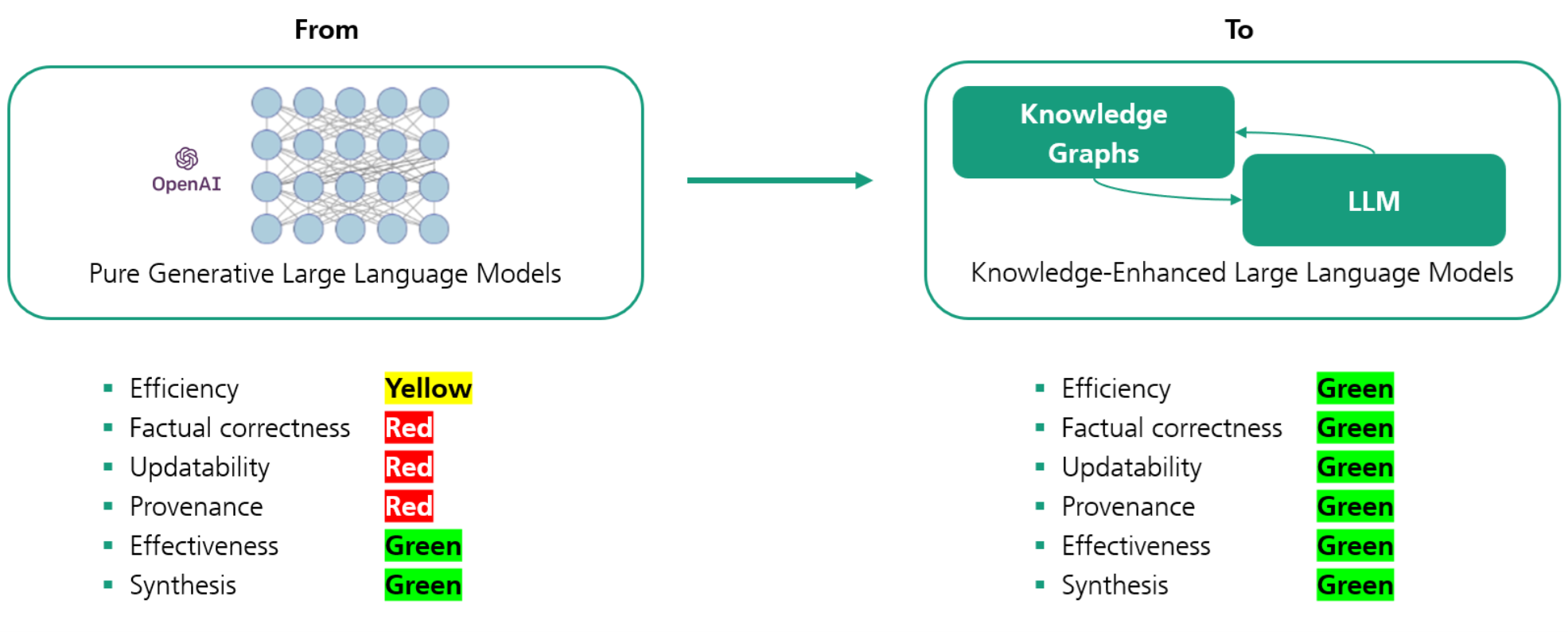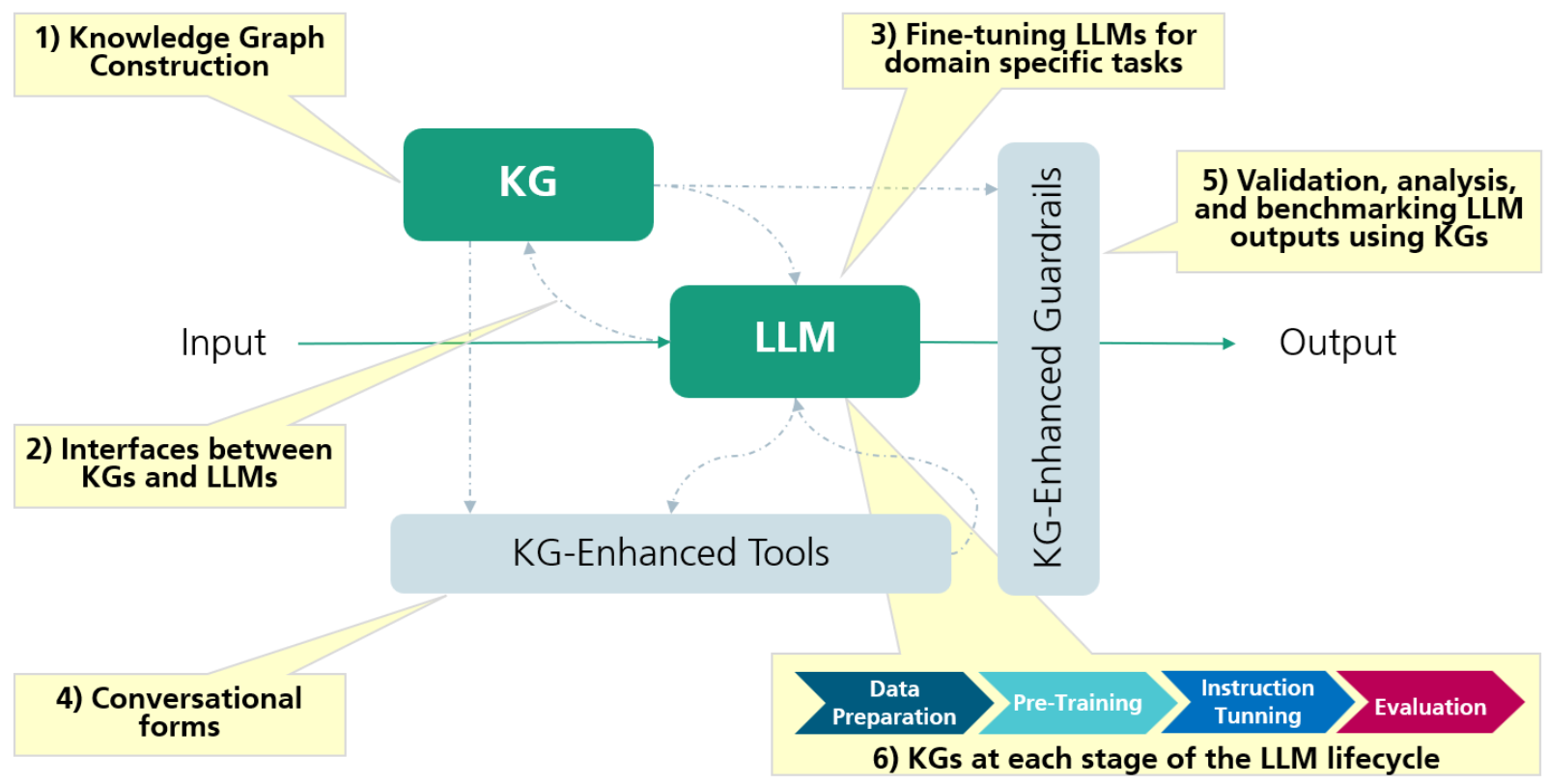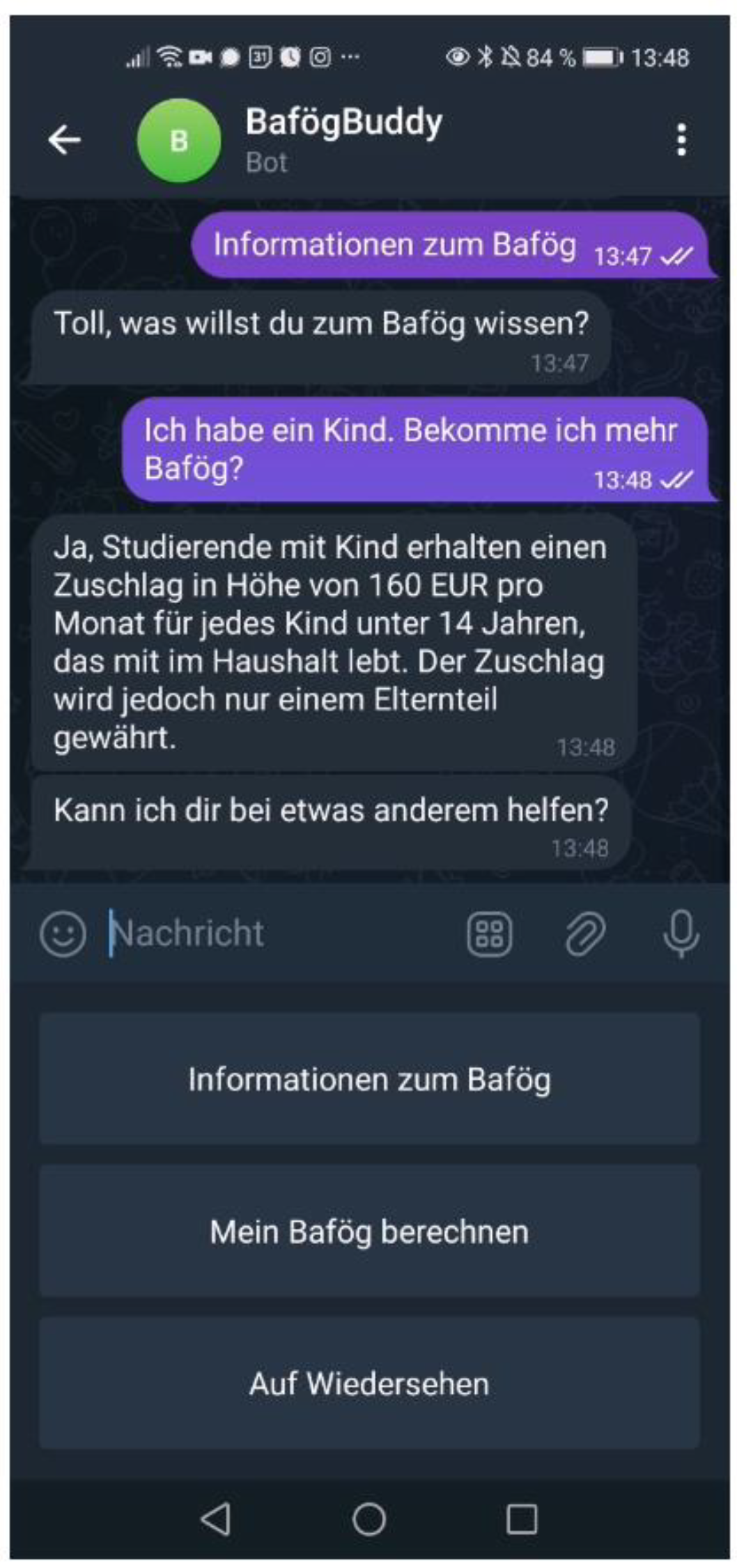1. Knowledge graph construction
We offer comprehensive support to companies in their journey towards constructing their knowledge graph. Our approach is flexible, allowing businesses to build KGs at their own pace, following a pay-as-you-go model. This means that organizations can incrementally develop and refine their KGs in alignment with their evolving data needs and priorities. Our guidance ensures that the construction of KGs is not only efficient but also tailored to the specific requirements of each company, facilitating the seamless integration of heterogeneous data sources and the harnessing of valuable insights.
2. Interfacing KGs and LLMs
We employ cutting-edge techniques, such as retrieval-augmented generation, to facilitate a robust and dynamic interface between these two essential components. Furthermore, our specialized Text-to-SPARQL components enable organizations to effortlessly translate natural language queries into structured queries, making it easier to extract precise and relevant information from KGs. This comprehensive approach empowers companies to unlock the full potential of their data by enhancing the interoperability of KGs and LLMs.
3. Fine-tuning LLMs for domain specific tasks
We are also dedicated to helping companies fine-tune LLMs for domain-specific tasks. Our specialized approach tailors LLMs to the unique requirements of each business, ensuring they excel in tackling specific challenges within their industry or domain. By fine-tuning LLMs, organizations can leverage the power of state-of-the-art language models to enhance their data-driven decision-making, streamline processes, and achieve superior results in their specific fields. We are here to provide the guidance and expertise necessary to harness the full potential of LLMs in the pursuit of domain-specific excellence.
4. Connecting tools, e.g., Conversational Forms
We also specialize in connecting various tools to LLMs, with a particular emphasis on conversational interfaces. We empower businesses to seamlessly integrate these advanced language models into their existing software ecosystem, enhancing user interactions and providing innovative conversational experiences. Whether it's chatbots, virtual assistants, or other conversational forms.
5.
Validation, analysis, and benchmarking LLM outputs using KGs
We assist organizations in ensuring the accuracy and reliability of LLM-generated content by validating it against the structured knowledge stored in KGs. Additionally, our analytical tools enable in-depth examination of LLM outputs, offering valuable insights and actionable data for decision-making. Through benchmarking, we provide a framework for companies to assess the performance of LLMs in various contexts, facilitating continuous improvement and fine-tuning to meet their specific needs and standards.
6. KGs at each stage of the LLM lifecycle
We are also actively engaged in groundbreaking innovation in the construction of LLMs. Our unique approaches include a thorough examination of how KGs can be integrated into each stage of the LLM lifecycle. By leveraging KGs, we empower organizations to improve LLM construction, from model training to fine-tuning and deployment. This breakthrough approach not only ensures improved LLM performance, but also facilitates the exploration of new applications and opportunities in natural language understanding and generation, ultimately driving innovation and competitive advantage for our customers.




